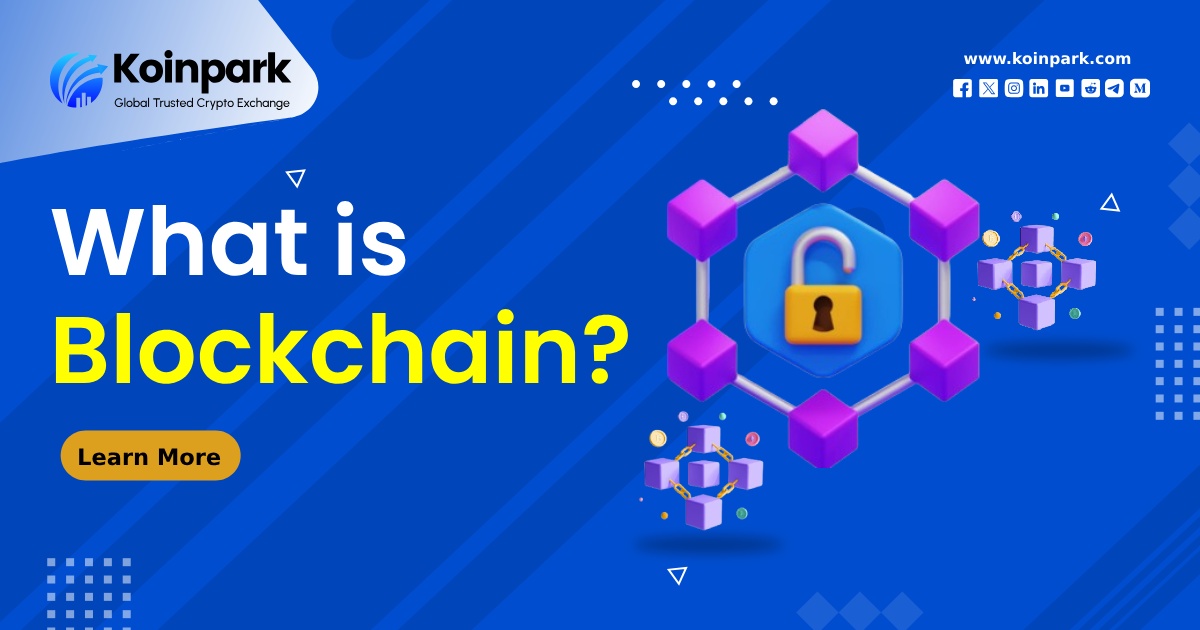Blockchain is a decentralized digital ledger that records transactions across multiple computers securely and transparently, offering immutable and tamper-proof data storage.
Let's see more details about blockchain in the below article👇
Table of Contents
*Introduction
*Understanding Blockchain
*How Blockchain Works
*Benefits of Blockchain
*Visualizing Blockchain
*Features of Blockchain
*Types of Blockchain
*Applications of Blockchain
*Importance of Blockchain for a Crypto Trading Platform
*Conclusion
Introduction:
In the world of technology, few terms have captured as much attention as "blockchain." You might have encountered it in discussions about cryptocurrencies like Bitcoin [best site to buy Bitcoin], but what exactly is blockchain, and why does it matter? Let's break it down in simple terms.
Understanding Blockchain:
At its core, blockchain is like a digital ledger shared across a network. It records transactions in a way that's secure, transparent, and resistant to tampering. Imagine it as a public notebook where everyone can see every transaction, but no one can erase or change them. It's essentially a digital democracy for data.
How Blockchain Works:
Decentralization:
Unlike traditional databases controlled by a central authority, blockchain relies on a network of computers spread worldwide.
Blocks and Transactions:
Transactions are grouped into blocks, each containing a unique code called a hash generated based on the block's information.
Chaining Blocks:
Blocks are linked together chronologically, forming a chain. This creates a secure and unalterable sequence.
Consensus Mechanism:
Before adding a new block, the network must agree that the transactions are valid. This is achieved through mechanisms like Proof of Work or Proof of Stake.
Benefits of Blockchain:
Transparency:
All participants have access to the entire blockchain, promoting transparency and accountability.
Security:
Blockchain's decentralized and cryptographic design ensures high security.
By removing intermediaries such as banks, blockchain reduces costs and speeds up processes.
Smart Contracts:
Blockchain supports smart contracts, automating and enforcing contract execution.
Visualizing Blockchain:
Chain of Blocks:
Think of a series of linked boxes, each containing transaction data. These boxes form a chain, securing the data.
Distributed Database:
Imagine a massive spreadsheet stored on multiple computers simultaneously. Any changes made are reflected across all copies immediately.
Features of Blockchain:
Cryptographic Hashing:
Each block contains a unique cryptographic hash, making tampering virtually impossible.
Immutability:
Once a block is added, it's incredibly difficult to alter because it would require changing subsequent blocks.
Decentralization:
Blockchain is not controlled by any single entity, ensuring resistance to censorship and manipulation.
Types of Blockchain:
Public Blockchains
Private Blockchains
Consortium Blockchains
Permissionless Blockchains
Permissioned Blockchains
Hybrid Blockchains
Applications of Blockchain:
Cryptocurrencies
Supply Chain Management
Healthcare
Finance
Importance of Blockchain for a Crypto Trading Platform:
Blockchain is essential for a global cryptocurrency exchange due to its decentralized, transparent, and secure attributes. It ensures trust by eliminating the need for a central authority and enhancing security, transparency, and efficiency.
In essence, blockchain redefines trust, transparency, and security in our interconnected world. It's a versatile technology reshaping industries and processes, including the global cryptocurrency exchange landscape.
Conclusion:
In summary, blockchain technology stands as the foundation of trust and reliability across various sectors, notably in cryptocurrencies. Its decentralized structure, cryptographic principles, and agreement mechanisms redefine how we view transparency and security in our digital era. Whether it's facilitating transactions on the best crypto trading platform in India or optimizing supply chain management, blockchain's adaptability and dependability are evident.
For a crypto trading platform, blockchain isn't merely a tech innovation; it forms the very essence of trust, security, and operational efficiency. Serving as the backbone of the digital asset ecosystem, blockchain guarantees transparent, unchangeable, and secure transactions. This ensures that traders on the best crypto trading platform in India can engage with confidence, knowing their transactions are protected and verified.
Read and Explore More: https://www.koinpark.com/blog/what-is-blockchain
Click here to read About Cryptocurrency a beginner guide
Click here to Download the app: Crypto trading app


No comments yet